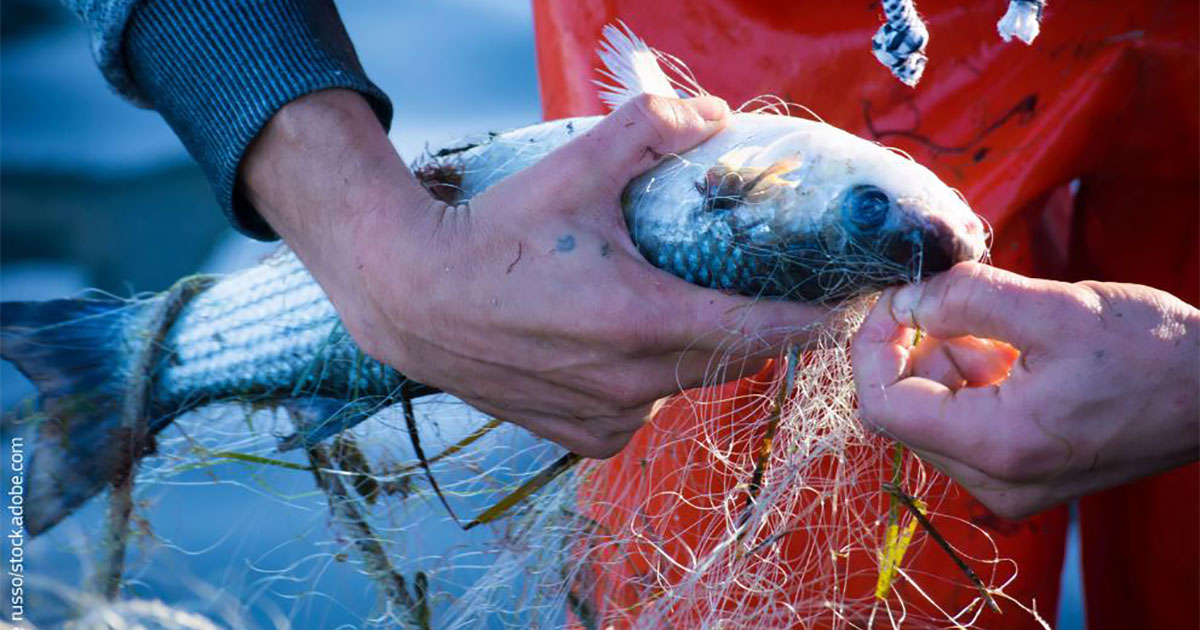New rules for a reinforced control system enter into force, Tuesday January 9, 2024.
The revised rules modernize the way fishing activities are controlled, for both EU vessels and those fishing in EU waters.
They will help prevent overfishing, create a more effective and harmonized fisheries control system and ensure a level playing field between different sea basins and fleets.
The revised EU fisheries control regulation updates most of the rules for controlling fishing vessels to bring them in line with technological developments and make EU fishing more sustainable.
The main changes relate to improved monitoring of fishing activities and traceability of catches by making use of the best available technology and sanctioning those breaching the rules.
Commissioner for the Environment, Oceans and Fisheries Virginijus Sinkevičius said:
“The revised fisheries control system is the culmination of five years of negotiations. With it, we are significantly updating the way fishing activities are monitored, to ensure that our precious marine resources are better protected, and fisheries control rules are better enforced through the whole chain, from the net to the plate.”
Better Harmonization and Preservation of Marine Resources
The new provisions will ensure a more harmonized fisheries control system for EU fisheries and better preserve marine resources through:
- strengthened fight against illegal, unreported and unregulated fishing (IUU)
- the transition to full digitalization, new technologies and modern data management.
The control of fishing activities will be entirely digitalized—from the net to the plate—by gradually expanding the geo-localization and electronic reporting to all fishing vessels, irrespective of their size, and mandating catch recording and reporting in certain recreational fisheries.
All fishing vessels will be tracked via a vessel tracking systems (VMS) and all catches will need to be recorded via electronic means.
User-friendly tools such as apps on mobile devices will be used to remove the burden for fishers.
For the first time, full digital traceability will be mandatory along the supply chain, enabling the authorities to more effectively tackle illegal fishing. The system will be mandatory for fresh, frozen and aquaculture products and will gradually be expanded to processed fisheries products, such as canned products, by providing more information on the origin to consumers. These rules will apply to all fisheries products including imported ones.
The new EU control system rules also strengthen the compliance of the ‘landing obligation’ (to make sure unwanted catches are not illegally discarded at sea, but brought to shore): they include obligations for remote electronic monitoring (with onboard cameras) for fishing vessels above 18 meters that present a high risk of non-compliance with this obligation.
Importantly, the new rules include harmonized sanctions for breaching the rules of the common fisheries policy, in particular in the case of serious infringements.
New Rules for Imported Fishery Products
For imported fishery products, the use of the IT tool CATCH will become compulsory.
EU importers will need to use CATCH from 9 January 2026 to submit the catch certificates for the importation of fishery products in the EU market.
CATCH streamlines the catch certification process for fishery products entering the EU market and offers a fully digitalized and paperless workflow. It facilitates the exchange of data, information and documents between all involved trading parties and control authorities and therefore simplifies and speeds up the administrative procedures.
CATCH makes it easier to identify and prohibit importation into the EU of fishery products obtained from illegal, unreported and unregulated fishing (IUU), thus improving the effectiveness of the EU IUU Regulation’s catch certification scheme.
Next Steps
The regulation enters into force on 9 January 2024 but there are transitional provisions to leave enough time for the EU's fishing authorities and other relevant stakeholders to adapt to the new requirements.
Most provisions of the amended regulation will apply in 2 years, from 10 January 2026. Derogations to the margin of tolerance apply in 6 months (from 9 July 2024).
Some provisions will apply only after 4 years (from 10 January 2028), as their implementation may require some preparatory work, such as the remote electronic monitoring, or electronic tracking and catch recording for small scale fleet.
Few other provisions will apply only after 5 years (from 10 January 2029), such as the ones on traceability for prepared and preserved fishery and aquaculture products or for algae.
In the coming months and years, the European Commission will adopt the necessary regulations to ensure a harmonized implementation of the new rules across the EU.
Background
Control rules are fundamental to implement the EU common fisheries policy, in particular to monitor fishing quotas and to ensure that unwanted catches are not being illegally discarded at sea.
Monitoring and control of fishing activities is carried out by national authorities, with the support of the European Commission and the European Fisheries Control Agency.
In 2018, the European Commission proposed to revise the EU fisheries control system to simplify it and ensure full compliance with the reformed common fisheries policy.
At the end of May 2023, the two co-legislators, the European Parliament and the Council, agreed on a final deal, that they approved formally on 20 December 2023.



